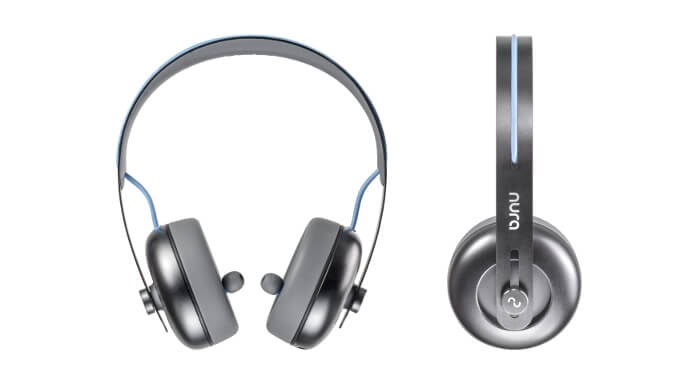Nura’s soundwave technology automatically measures a person’s hearing and adapts the music to suit him or her

From left: Wilson Shao, engineer; Luke Campbell, Co-founder, CTO; Kyle Slater, Co-founder, CEO; Dragan Petrovic, Co-founder, COO
Owning a good set of headphones is not exclusive to disc jockeys or audiophiles; in an age of music listening on the go either via smartphones or mp3 players, getting optimal sound quality does not just provide rich aural pleasure, it also protects your hearing. There’s a vast selection of high-end headphones on the market and selecting one that suits your preference may be a tad tedious. Melbourne-based startup Nura, however, claims to have solved this very pain point.
Nura’s headphones (simply called Nura) claims to have a soundwave technology that measures a person’s hearing then adapts the sounds transmitted to suit his or her hearing — in simpler terms, it is capable of finding each person’s unique sonic sweet spot.
“We love music and have a deep respect for the artist who create it. So, we asked the question ‘how do you create the perfect headphones?’ To create it, we have to first learn how you hear, and then adapt to match your hearing perfectly. This results in a richer more detailed connection with the music you love,” says Kyle Slater, Co-founder and CEO of Nura, in an interview with e27.
Also Read: Manufacturing hardware in China from scratch: Q&A with Liam Bates, Co-founder of origins technology
Nura was founded in 2015 composing of a team of experts in engineering, acoustics, biology, hearing science and product delivery. Slater himself has a PhD in psychoacoustics (the study of the perception of sound and its physiological and psychological impact). CTO Luke Campbell also specialises in the field of hearing: he is an MD who has performed surgeries on people’s ears and has a PhD in hearing science.
The technology
To understand the technology’s methodology, first, it’s important to understand how the human ear works. When soundwaves enter the ear, it creates vibrations in the eardrums which in turn, converts into electrical signals sent to the brain, which it then interprets as sound.
Now, here’s the part you have probably never heard (no pun intended) about: while all this is going on, the ear also produces a faint sound via otoacoustic emission (OAE).

Nura’s internal microphone uses this OAE to calculate each user’s optimal hearing frequencies. First, the user connects the headphone to a smartphone, it then sweeps through a range of test tones of varying frequencies for 30 seconds.
By processing these signals it works out how well specific frequencies of sound got through to the user’s brain. It then calibrates the frequencies to sonically match the user’s hearing, allowing for a rich and balanced sound tailored to the user.
Also Read: Meet Tiny1: A Singaporean astronomy camera that got crowdfunded in less than four hours
Slater says designing a system sensitive enough to detect faint signals was “no mean feat”.
“We also needed to design the acoustics in such a way to ensure we could adjust the sound to address a wide range of individual hearing profiles. The industrial design of the over-ear in-ear was tricky. to say the least. Designing the in-ear piece in such a way that it provides universal fit was very challenging,” he says.
Leveraging on accelerators
Nura received its funding when it joined the Melbourne Accelerator Programme (MAP) — a business accelerator. Once the prototype was completed, the team joined hardware accelerator HAX to ramp up its manufacturing process.
“We learnt about manufacturing, distribution and some of the unique challenges of building a hardware company. At HAX we went from a big box electronics that demonstrated the technology to a fully functional demonstration unit,” says Slater.
Nura also launched its Kickstarter campaign two months ago. It hoped to raise US$100,000 but instead, managed to exceed its goal by 1,800 per cent, hitting US$1,803,988.
It plans to launch another crowdfunding campaign via Indiegogo and will hold a funding round later this year.
Nura is available on Kickstarter at US$199 at the moment, but will retail at US$399.
—
Image Credit: Nura
The post This Aussie startup hit 180 times its crowdfund goal to make headphones that tune to your ear appeared first on e27.